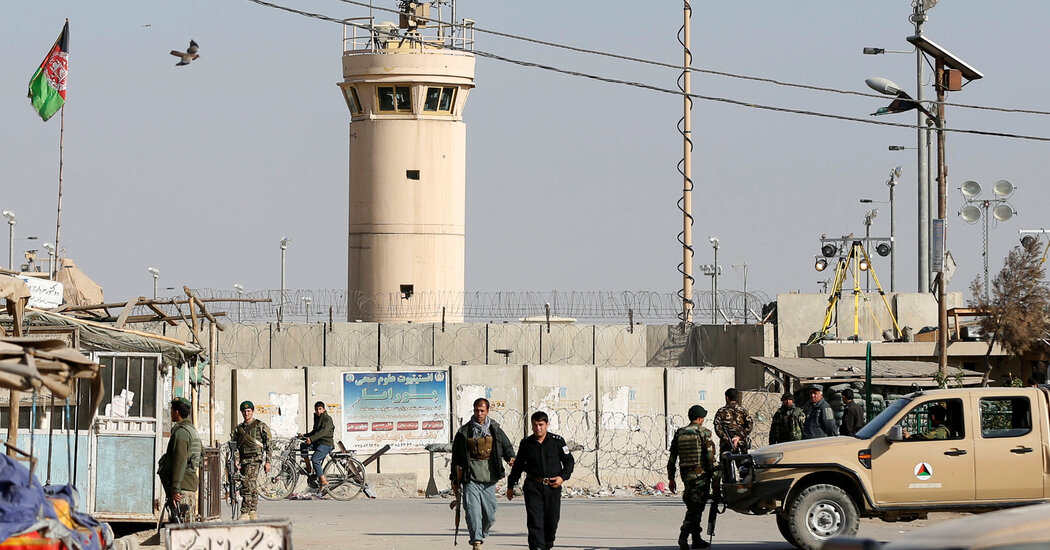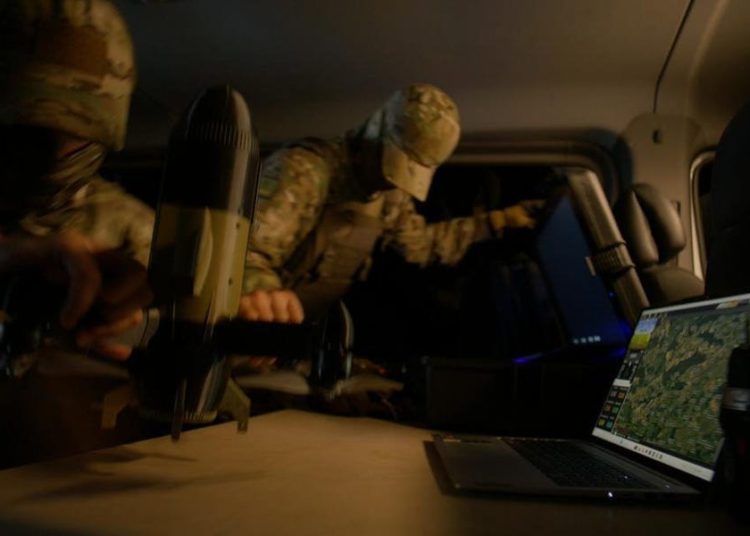In November 2016, as American soldiers gathered for a Veterans Day event at Bagram Airfield in Afghanistan, a suicide bomber detonated his vest.
The attack killed five others and injured 17.
The bomber, Ahmad Nayeb, was a former Taliban fighter who had been hired to work on the American base as part of an initiative to develop the country’s economy. He had been vetted by the military and hired by a labor broker for a Defense Department contractor.
Mr. Nayeb worked the night shift on the base, and a military investigation later revealed that he had most likely smuggled in parts and built the bomb while on the job.
One of those injured in the blast, Specialist Winston Tyler Hencely, sued the military contractor under a South Carolina injury law. He argued that the company, Fluor Corporation was negligent when it hired Mr. Nayeb. A key company subsidiary is based in Greenville, S.C.
That lawsuit was the subject of a debate at the Supreme Court on Monday about whether a military contractor can be held liable under state laws for its conduct in a war zone.
A federal law allows people to seek compensation for government wrongdoing in some circumstances. That law, the Federal Tort Claims Act, is the same one that President Trump is relying on to pursue about $230 million in damages from the federal government on claims he was mistreated during F.B.I. investigations into his conduct.
The contractor argued that exceptions in that federal law foreclosed Mr. Hencely’s lawsuit, and lower federal courts agreed.
But Mr. Hencely said his suit under the state law should be allowed to proceed, the issue the justices considered on Monday.
During the argument, the justices grappled with the limits on when military contractors can be held liable for injuries to soldiers.
Justice Brett M. Kavanaugh called the bombing “terrible” and said that he was “completely sympathetic to that” but appeared skeptical of allowing state courts to assess blame in combat zones.
He said that war-making was the proper purview of Congress and that if federal legislators wanted such claims to be heard in state courts, he would “expect Congress actually to speak clearly” to allow it.
“If you’re talking about uniquely federal interests, there’s nothing that’s more uniquely federal than successfully fighting a war in a combat zone,” Justice Kavanaugh said.
Frank H. Chang, the lawyer for Mr. Hencely, argued that nothing in the Constitution’s “text, structure and history” would bar the soldier’s lawsuit. Mr. Chang explained that it was up to Congress to create any limitations on state injury laws.
“Congress has done so in some circumstances when it comes to federal contractors, but it has not barred claims by American soldiers injured by contractor negligence,” he said.
Mr. Chang added that he would “agree that Texas can’t declare war on Mexico or New York can’t invade Canada.”
That prompted Justice Kavanaugh to quickly cut in, asking, “But can Texas regulate how the military structures its operations at Bagram, or can South Carolina regulate it?”
Justice Kavanaugh also mused about how such cases would play out in state courts since they would require the testimony of top-level military officials and could raise significant questions about foreign policy, including, in this case, why former Taliban members had been hired to work on American bases.
“Do you envision that kind of testimony happening in the state court?” Justice Kavanaugh asked the lawyer for Mr. Hencely, sounding skeptical.
Lawyers for the Trump administration shared that skepticism, joining the contractor to argue that the lawsuit should be barred.
Curtis E. Gannon, a deputy solicitor general, urged the justices to reject the lawsuit, asserting that “the Constitution has vested the nation’s war powers in the president and Congress and has expressly divested the states of such powers.”
The soldier “indisputably cannot sue the U.S. Army directly, and he should not be permitted to sue its combat support contractors instead,” Mr. Gannon said.
The lawyer for the contractor, Mark W. Mosier, called the bombing an “act of war” and asserted that the Federal Tort Claims Act pre-empted the soldier’s lawsuit because it conflicted with “uniquely federal interests” — the federal government’s “exclusive war-making powers.”
He added that applying such state personal injury laws to war zones would “weaken the military’s control over combat operations.”
Justice Neil M. Gorsuch pointed to the increased use of contractors in war zones in recent decades and noted that handling questions about their liability “certainly raises some significant policy issues.”
He said he could see policy arguments on both sides. On the one hand, Justice Gorsuch said, immunizing contractors against liability might help the military. On the other, he said, “maybe the military benefit most from having efficient contractors who are less likely to cause harm to military members.”
Justice Gorsuch questioned whether a decision about when and how military contractors can be held liable in cases of negligence might be a policy choice better left to Congress than the courts.
“Why isn’t that a judgment that really cries out for congressional decision and what — what expertise do we have in setting that rule?” Justice Gorsuch asked.
Abbie VanSickle covers the United States Supreme Court for The Times. She is a lawyer and has an extensive background in investigative reporting.
The post Supreme Court Grapples With Suit by Soldier Injured in Bombing on U.S. Base appeared first on New York Times.




